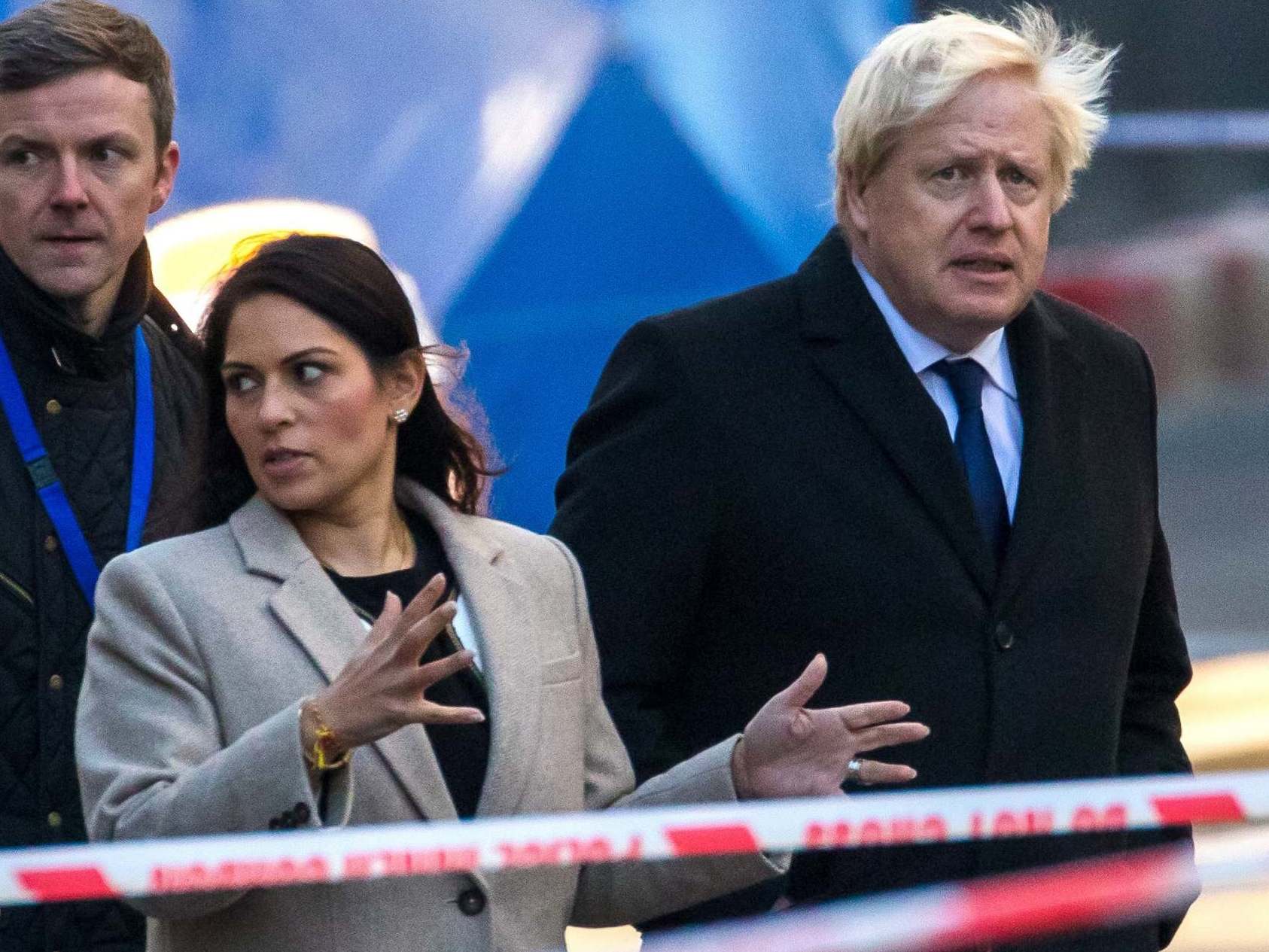Boris Johnson accused of ‘copying and pasting’ legal thread about London Bridge from a blog
Source close to the prime minister denies claim of plagiarism

Boris Johnson has been accused of copying a guide of the legal background to the London Bridge terror case from a blog.
The anonymous author of the Secret Barrister blog described the apparent plagiarism as “weapons-grade shithousery”, accusing Mr Johnson of having “basically copied and pasted my blog post”.
But a source close to the PM emphatically denied that Mr Johnson’s explanation – in a 16-post Twitter thread – was copied.
The PM’s thread was posted on Sunday, shortly after the lengthy blog post was published on the Secret Barrister website.
The blog’s author pointed out that, as well as making the same points in a similar sequence to his post, the PM’s explanation linked to the same Prison Reform Trust document and repeated the same observation about misreporting of comments made by Lord Justice Leveson regarding the role of the Parole Board.
The blog post also included criticism of the prime minister for trying to “score cheap political points” in the wake of the tragedy and accused the government of “outright lying” about the background to Usman Khan’s early release, but these were not repeated.
Writing on Twitter, the Secret Barrister’s author said: “The prime minister has basically copied and pasted my blog post into a thread and passed it off as his own explanation.
“A blog post which I had to write to rebut the lies he spent yesterday spouting. This is weapons grade shithousery.”
He later added: “The possibility that the PM’s own legal advisers drafted his thread without any regard to my witterings has to be carefully considered. But I just can’t see it.
“If so, it would mean a PM who has never before engaged in any form of detailed legal exposition – his style is famously broad brush and bright colour – decided apropos of nothing to publish a lengthy legal explainer on a complex issue, hours after mine was widely circulated.
“It would also mean he decided, purely coincidentally, to link to the same PRT document that I linked to, and even digressed (as I did) into clearing up a comment by Leveson that was misreported in the press.
“The number of people who have (apparently independently) noticed the similarities in substance, even if the language has been changed, leads me to believe I’m not going mad. The most obvious explanation is that Johnson (or likely his special advisers) have taken their info from the blog, stripped out the inconvenient context and used it to present Johnson as a legal sage sharing his wisdom. Or, as I’m told academics would term it, plagiarism.”
The blog was presented as an attempt to clear up confusion over why Usman Khan was released from prison after serving eight years of a custodial sentence.
It set out the differences between Imprisonment for Public Protection (IPP), introduced by Labour in 2005 for offenders deemed to be a danger to the public, the similar Detention for Public Protection (DPP) for dangerous offenders aged 18-21 and Extended Determinate Sentences (EDS) which replaced them in 2012 under the coalition government.
It explained how Khan was initially handed an indeterminate sentence in 2012 under which he was to be held for a minimum of eight years, and would then have to convince the Parole Board that he was no longer a danger to the public before being released.
And it related how the Court of Appeal later amended this to an extended sentence, which did not require Parole Board approval before his release under licence at the end of the eight-year period.
Using different wording, Mr Johnson’s Twitter thread made essentially the same points and referred readers to the same Prison Reform Trust document, before making the same point about the widespread misinterpretation of Lord Justice Leveson’s comments.
Mr Johnson’s thread concluded: “Although four senior judges considered that Khan was dangerous, he was to be automatically released half-way through because of Labour’s 2008 law. That is why we are determined to change this and ensure dangerous terrorists serve their full sentence.”
But the blog’s author said: “One might ask why ensuring defendants serve the full term of their sentence is not mentioned in the [Conservative] manifesto. If this is such an obvious failing, why not promise to remedy it? Heaven forfend this is ad-hoc, evidence-free electioneering.”
Join our commenting forum
Join thought-provoking conversations, follow other Independent readers and see their replies
Comments
Bookmark popover
Removed from bookmarks